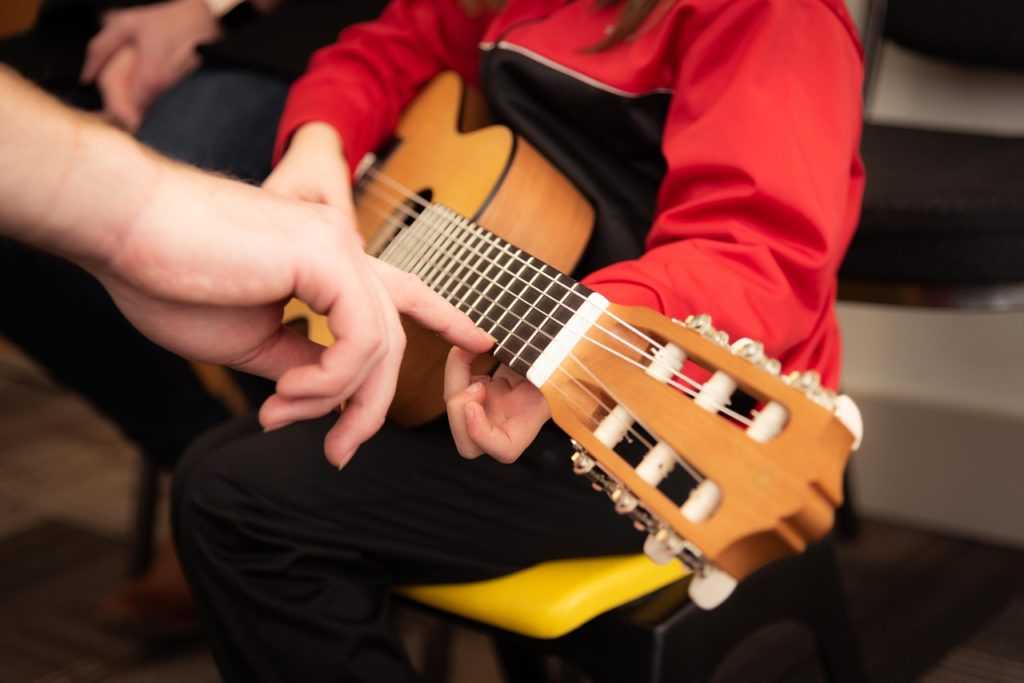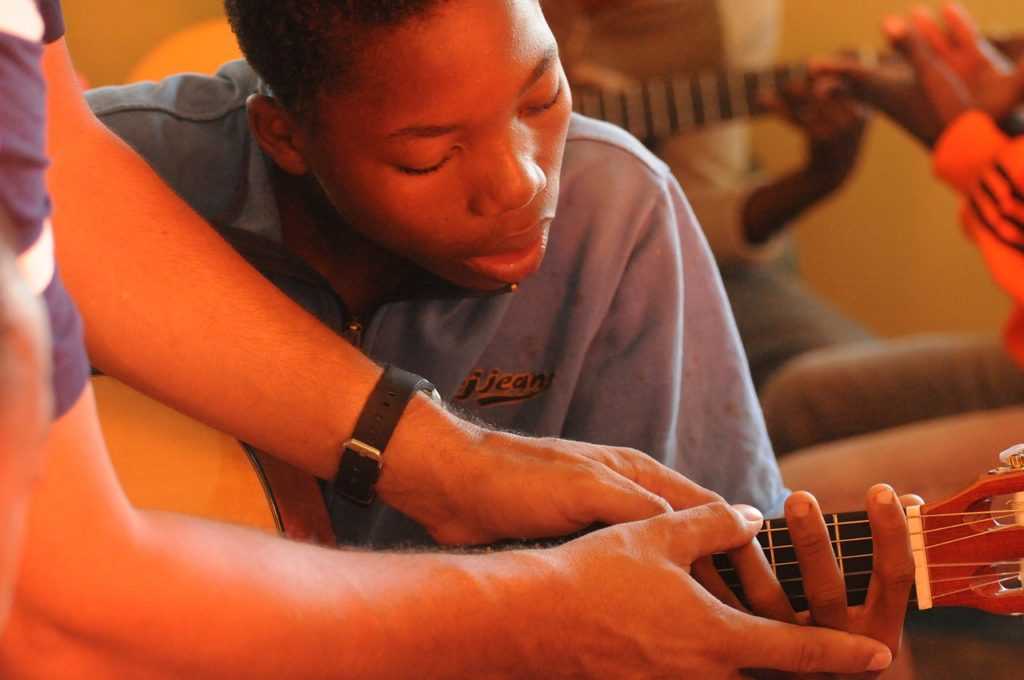How to Pick Music Lessons That are Right for You

Learning to play an instrument or sing can be a rewarding career that you can participate in for your entire life. But for music to be an enjoyable pursuit, you need to be taking the right music lessons and studying with the right teacher.
Music lessons vary widely in their focus and quality. Before you settle on a music teacher and music school, use these tips to evaluate the lesson program and determine if it’s right for you.
Inquire about the teacher’s experience.
Technically, anyone can teach music lessons no matter how much experience they have (or don’t have). You’ll want to find a teacher who has plenty of experience in both playing and teaching music lessons. If you’re just starting out as a musician, an experienced teacher will be able to provide you with a solid foundation so that you learn methods the correct way from the very beginning. If you’re a more experienced musician, then you’ll also need an experienced teacher who can continue to provide insight and help you improve your skills as you tackle more demanding pieces. They should also have the skill to demonstrate the music and technique that you want to learn.
Ask about the styles of music that you’ll study.
You may already know that you want to specialize in a particular style of music, but studying different styles is valuable, too. While that one style may be your main focus, we can learn different things from different styles, such as ways to develop our ability to play by ear or to improve our technical playing abilities. Look for a music program that allows you to focus on one style, but that also gives you the chance to explore other types of music, too.
Find out about practice and performance requirements
Ask the teacher about how much they expect their students to practice and make sure that this aligns with your time commitment capabilities. You should also ask about performance requirements and opportunities, such as recitals.
Additionally, ask about other commitment requirements, from lesson frequency to purchasing method books or an instrument of your own.

Ask if you’ll be able to interact with other students.
One main advantage of enrolling at a music school or taking lessons from a teacher who has a large studio is the ability to interact with other music students. Ensemble opportunities are an important part of your development as a musician, and larger studios or schools are more likely to have additional opportunities, such as masterclasses or recitals and concerts. Many students find community at the right music school.
Make sure your goals align with the teacher’s.
Additionally, think about how the teacher can help you to attain those goals. If you want to audition for college, then you’ll need a music teacher who is well-versed in the audition process and who has successfully guided many other students through those auditions.
Consider whether the teacher’s style works for you.
If possible, take a trial lesson with your new teacher to determine how well you can understand their teaching methods. Everyone learns differently, and a great music teacher should be able to present information in a variety of ways so that you can understand it. As your teacher gets to know you and understands how you learn best, they should be able to tailor their teaching methods so that you can quickly learn.
Choose lessons where you get enough help from your teacher.
Group lessons may be more affordable than private lessons, but a teacher’s attention is divided between many students at once. Because beginning music students often enroll in group lessons, this arrangement means that a teacher could overlook flaws in your posture or method that could have otherwise been caught early and easily changed.
Private lessons, on the other hand, mean that you’ll receive your teacher’s undivided attention. Your teacher can quickly identify areas for improvement before they become habits, allowing you to learn better and faster than you would experience in a group lesson setting.
Finding the Right Music Lessons
You may need to interview a few different music teachers and schools before you find the music lessons that are right for you. If you have friends who play music, ask them about music teachers that they would recommend.
Taking your time to find the right music lesson program is important, since the right lessons can help you to enjoy playing music and prepare you to become a great musician. At Sage Music School, our professional music teachers give musicians in New York City, San Antonio - or anywhere else online - the tools that they need to achieve their goals.
Related

Sage

Article
You are never too old...
“You are never too old to set another goal, or too dream a new dream”
Sage
